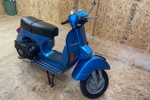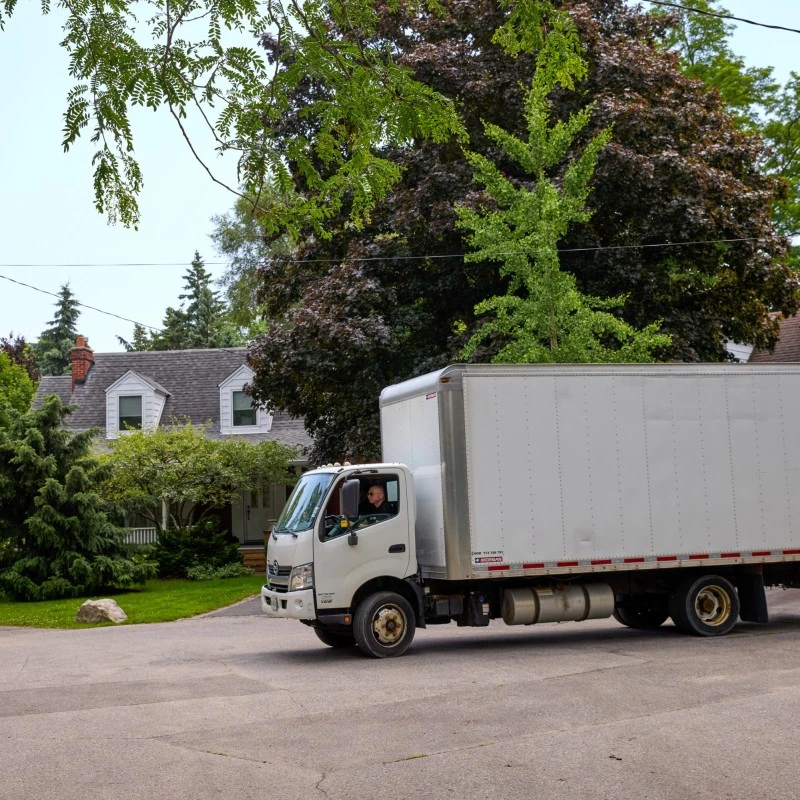Cultural Etiquette Tips for Newcomers to Canada


Canadian culture doesn’t have a strict code of social conduct like some more traditional cultures.
However, Canadians overall tend to be friendly, genuine, and value honesty, kindness, and respect for others' privacy and individuality. While not all Canadians adhere to these qualities, good manners are a strong Canadian value in general.
How to Greet Someone in Canada
-
Canadians commonly shake hands when meeting someone new, or in a more formal or neutral reintroduction. It is considered offensive to refuse a handshake when offered.
-
Close friends and family will often share a quick hug upon meeting. Not all Canadians hug–remember that Canada is a multicultural country and not all cultures practise hugging.
-
Some French Canadians partake in the European practice of giving each other a light kiss on the cheek as a friendly greeting. This is also a common gesture for Latin Americans living in Canada.
READ: 9 Tips for Discovering Your Community After a Move
The Canadian Politeness Stereotype
There is a stereotype that Canadians are overly polite. This is relative. People in Canada are generally peaceful and promote harmony through basic behavioural decency.
The word sorry is often overused. Even in neutral situations where someone has to move of the way to let someone else pass, Canadians will apologise before moving. Canadians will also apologise for basic, non-serious miscommunications or misunderstandings.
While saying sorry isn’t mandatory, it has become a common part of Canadian interaction even though the person saying sorry hasn’t done anything “wrong”. Saying sorry is a polite way to diffuse awkward situations and keep the conversation flowing naturally.
Eating and Restaurant Culture in Canada
Canadians have commonly shared eating practices:
-
It is considered polite to wait until everyone at the table is seated (especially the cook) to begin eating.
-
Some Canadians will say a short prayer or blessing of the food before eating.
-
Many Canadians place their napkins on their lap before eating.
-
It is polite to wait until everyone has served themselves before going back for a second helping.
-
If you are a guest, it is common to offer to help clean up and wash dishes after the meal.
-
If you are invited for a meal, it is polite to ask if you should bring anything to complement the meal, including dessert or a bottle of wine.
-
Avoid belching loudly, chewing with your mouth open, elbows on the table and talking with food in your mouth.
Canadians like to treat each other to meals and/or drinks. It is common to politely refuse to be bought a meal or drink until the one paying insists on covering the bill.
Tipping in Canada
A “tip” is a donation of extra money that goes towards the service staff at a restaurant. Their hourly wages are usually quite low and they depend on tips from customers to bring their income up to “living wage” level.
A normal tip is usually 15%-20% of the total bill. Poor service can garner no tip or a low tip such as 10%. Exceptional service can garner generous tips in the 25%-30% range.
Tipping is also normal for service providers and cleaners. This includes hair and beauty services, massages and taxi or Uber drivers. If you stay at a hotel, tip the valet and bellhop. It is normal to leave the cleaning staff a tip in the room when you are leaving.
Gifts
There are several occurrences where Canadians give gifts or flowers to their loved ones:
-
Birthdays
-
Christmas
-
Valentines Day
-
Mother’s/Father’s Day
-
Weddings
-
Baby Showers
-
Moving into a new home
-
Celebrating occurrences such as getting a new job or completing a degree
Canadians will also buy gifts abroad to bring home as souvenirs for their loved ones.
READ: Cultural Festivals in Canada: Celebrating Diversity and Heritage
General Respect and Politeness in Canada
Seniors, pregnant women and mothers with children are treated with extra respect and consideration.
Canadians in general practice guidelines for politeness that are recognised everywhere in the world:
-
Express gratitude and kindness, Say “please” and “thank you”.
-
Respect others’ personal space.
-
Make others feel comfortable by showing empathy and adjusting the conversation/changing the topic to ease discomfort.
-
Respect the privacy of others by avoiding overly personal questions unless suitable.
-
Let others finish speaking first before replying.
-
Maintain regular eye contact when in conversation.
-
Disagree without hostility.
-
Refrain from spreading rumours and change the subject if necessary.
-
Show respect for everyone, regardless of status or background.
-
Address issues directly and openly.
-
Be understanding and gentle when someone makes a mistake.
-
Adjust your speaking volume to suit the environment, i.e. sitting in a quiet restaurant vs. in the bleachers of a football game.
-
Cover your mouth if you sneeze, yawn or cough.
Daily Considerations in Canada
-
Show up on time for appointments, dates and work shifts.
-
Call or text first before stopping by someone’s house.
-
Don’t call anyone before 8am or after 8pm unless they are close friends or family.
-
Try not to call someone during dinnertime.
-
Contribute to chores and groceries if you are a guest at someone’s house.
-
Offer to contribute gas money if someone drives you somewhere.
-
Cancel plans as soon as possible, not last-minute.
Things to Avoid Doing or Saying in Canadian Polite Society
-
Profanities
-
Derogatory language
-
Pointing
-
Staring
-
Wearing clothes with private areas showing
-
Touching others without consent
-
Standing too close to someone
-
Using sarcasm or irony inappropriately
-
Dressing too casually at work or events
-
Expecting others to pay for your meal or drinks
-
Being intoxicated in public
-
Mocking or insulting anyone for doings things differently i.e. multicultural practices
-
Littering
-
Wasting resources
-
Asking about someone’s weight, age, health or wealth
-
Cutting ahead in a lineup
-
Spitting
-
Waving or yelling at a waiter/waitress to get their attention
-
Loudly clearing the throat in public
-
Yelling in public
-
Bringing people with you to gatherings or outings without clarifying first
-
Leaving shoes on in the house
Moving to a new country and culture can be overwhelming at times. Learning etiquette is an important part of integrating into a new culture.
The etiquette in Canada is generally straightforward. By doing appropriate research, it’s easy to become familiar with cultural etiquette in Canada.

Top Move connects individuals with appropriate moving services, streamlining the process to save money and facilitate a smooth and effortless move.
What do our customers say?



























